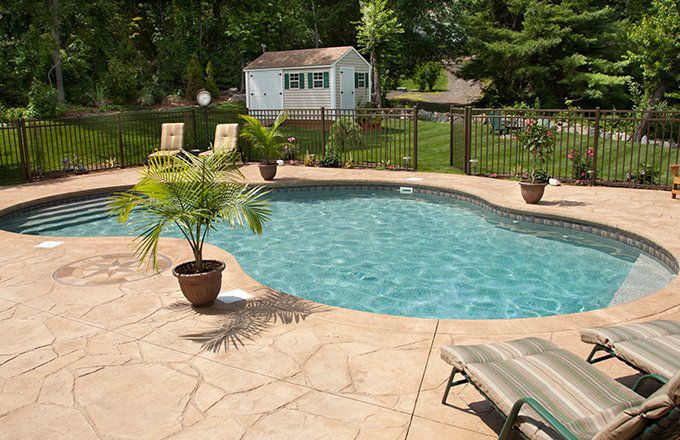Are you ready for a pool party? No, we are not talking about using the water feature in your home but if the answer is yes, you are not alone, as pool installations are soaring across the country in 2021. Pools are not only a huge draw with everyone looking to bring their vacations to their backyards, they are also increasing home values for sellers at unprecedented rates. Nationally, the amount of value an inground pool adds to home has increased an estimated 69 percent on average since the arrival of Covid-19, according to insights from top agents. If you are thinking about a pool and don’t know where to begin, here are some factors to keep in mind to make this high ROI investment a reality.
Find the right size
There are many factors to consider to maximize the ROI of backyard pools. Size is one of the major considerations when starting your research. The biggest issue is how much space you have to work with in your backyard. How do you determine just how much of it should be dedicated to your pool and how much you should leave for lounging? Pools are sold and priced by square foot, with 75 percent of the cost of a pool said to come from the size, and of course standard sizes will cost you less. Bigger isn’t necessarily better, and the best option may be finding the balance between pool and backyard.
Let it take shape
The shape of your pool helps in creating a first good impression about your home and it can also drive up the price, with rectangular, oval, or kidney-shaped as the most common options. A rectangular pool will typically be the least expensive because it can be formed in fiberglass or vinyl, while more creative shapes will be poured in concrete which can be upwards of $50,000 or more. Other factors about shape are the durability of different shapes and materials, with concrete adding durability along with that higher price tag. If you aren’t sure about your budget for a pool, start by using a net proceeds calculator to understand the overall sale price of your home first.
Take a dip in the water
A pool is relaxing because of its warm and clean water. However, anyone who has ever cleaned a pool after heavy winds or critters flying around will tell you that crystal-clear pool water doesn’t happen on its own. Cleaning happens with either a saltwater or chlorine system — and both have their own advantages. For chlorinated pools, you’ll need to add chemicals and keep an eye on them at regular intervals. Saltwater, however, uses a generator which will save you on chemical costs, but with the added generator cost. The ROI of each will vary depending on the size of your pool and the maintenance needed over time. Buyers will want to know not only the costs now, but in the future and this can dramatically impact ROI.
Like buying a house, the installation of a pool is just one expense that can contribute to its ROI. If you are thinking of moving soon, the long term costs won’t matter as much to you, but pool upkeep will be weighed carefully by buyers when they assess your home. Working with a professional and pricing out a few scenarios can help you find the sweet spot of the best ROI with durability. Before you know it, you’ll be lounging by the pool, enjoying the warm days of summer.

